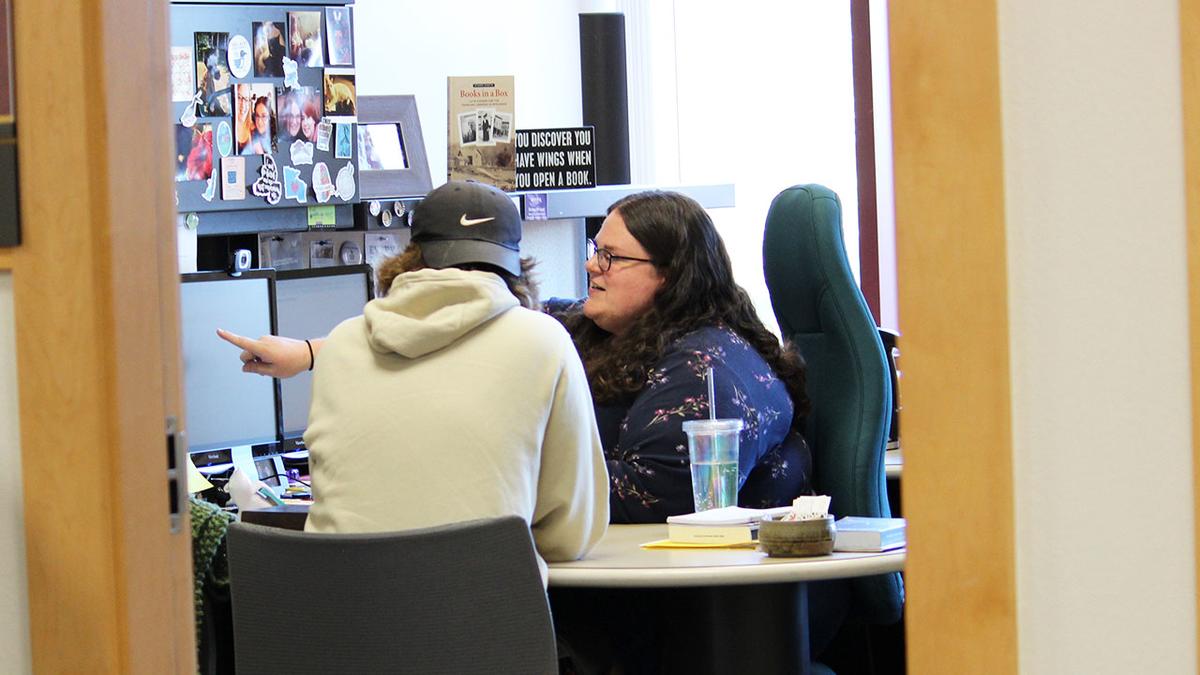What do you picture when you hear the word ‘librarian’? It typically conjures up stereotypical images of a bespectacled person carrying a stack of books and shushing students as they study, but as libraries and the information landscape have changed so have librarians. Our expertise comprises how information is created, distributed, organized, and used. We explore concepts like how can we know what we don’t know and how can we recognize the authority of a source. We also support you as you explore these ideas in your courses. Research Help is a service that librarians provide to help students, faculty, and staff find and use information. There are so many places to look for information between search engines like Google, online encyclopedias like Wikipedia, and library resources like the catalog and databases that the sheer amount of information can be overwhelming – librarians provide guidance, support, and instruction on how to navigate the world of information.
Why might you ask for research help?
You’re already probably pretty good at searching for information through Google or DuckDuckGo, but there are all kinds of situations when reaching out to a librarian may be helpful. Suppose you’re not sure where to get started with a research project or how to define the scope of your research for a class assignment, talking through a search strategy can make the research process less daunting and stress-inducing. If your usual process of searching for information isn’t working or you’re hitting a wall, librarians can guide you to a new resource that you didn’t know existed. Maybe you’re familiar with some key databases but you’re not finding the information you expected, librarians can provide search tips and techniques that are unique to search tools like databases or the library catalog. If you find yourself wandering the stacks trying to find a particular book, librarians can help you to read the call number to find it on the shelf so you can focus on using the information. When you’re feeling overwhelmed or frustrated with trying to find the information you need for a class, librarians are great resources to reach out to because we’re experts in finding information.
What happens when you ask for research help?
When students meet with a librarian for research help, most of the conversation happens in an office setting while consulting a variety of online tools. During the conversation, the librarian will probably ask a bunch of questions to help clarify what you need. For instance, if you dropped by Research Help asking if we had any books on global warming, librarians would ask questions to help determine whether you need a broad encyclopedia article about climate change, a book about how the media reports on climate change, or a scholarly article on the evolutionary responses of amphibians to climate change in the boreal forests of Northeastern Minnesota. Once you and the librarian are on the same page, you can work collaboratively to identify possible sources that leverage your interests and needs and the librarian’s expertise. This is also an opportunity to explore concepts like why can’t we freely access all information, how do we know if a source is credible, and who is believed and who is questioned?
You can meet with a librarian in person, over chat or email, or you can schedule an appointment. With so much information and so many avenues to access it, getting a little guidance and support can help reduce stress and make the research process easier for the next assignment, the next course, and the next chapter in your life journey.
